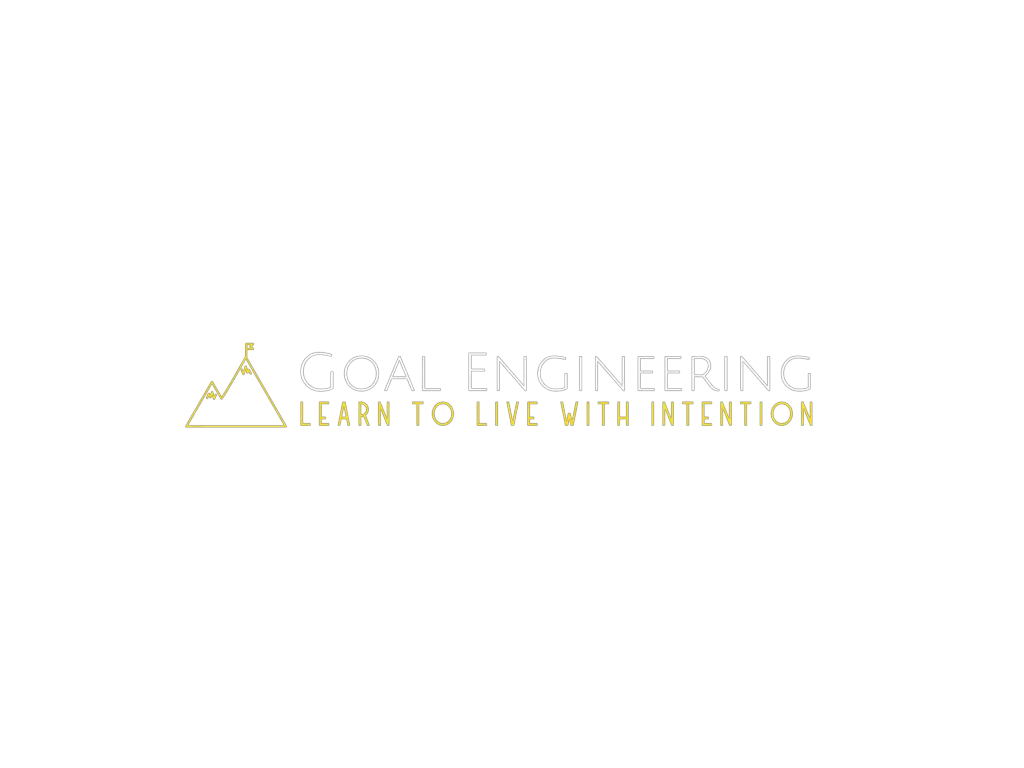You know that you need to have goals to grow. But you may have heard that it’s a good idea to have a vision for your life. So what’s the difference between goals and vision?
Goals are outcomes that you seek by taking specific action steps. Having a vision is to have an inspiring idea of what you can accomplish in the future. Goals give you a process and milestones to accomplish along the way, while vision gives you a view of what success looks like. Both are essential for personal growth.
Goals and vision are closely related. You can have one without the other, but for the best forward momentum, you’ll want to have both.
Word Math – Goals vs Vision
To understand the differences between words better I created something called word math. It involves getting the definitions of words then comparing them. You can learn more here.
The first step is to write out the definitions, synonyms, and origins of our words, all from Oxford Languages:
Goal: the object of a person’s ambition or effort; an aim or desired result.
Synonyms: aim, objective, desire
Origin: From the Middle English word Gol, which means boundary
Vision: the ability to think about or plan the future with imagination or wisdom
Synonyms: imagination, creativity, innovation, inventiveness
Origin: Latin videre, which means to see
Then, we put them into the phrase we’re curious about. So the difference between goals and vision turns into:
Goals are the objects of a person’s ambition or effort; an aim or desired result while vision is the ability to think about or plan the future with imagination or wisdom.
A simple way to look at is to compare synonyms.
Goals are aims, objectives, or desires. Vision is imagination, creativity, innovation, and inventiveness.
Alternatively, goals have more to do with direction and planning for the future, and having a vision is all about visualizing that future and what it will feel like to get there.
Let’s look at some examples to understand even better.
Examples of Goals vs Vision
Here are a few examples of personal goals:
1. Become a manager in the next five years by reading a leadership book every day for 30 minutes.
2. Complete a marathon in 12 months by following a training program every day.
3. Get a 4.0 in the final semester of college by studying for three hours per hour of in-class time, including one hour of visiting the professor’s office hours to ask questions.
4. Double your income in the next two years by changing jobs at least once and working on a side hustle from 5-9 pm every day.
5. Improve communication skills by taking a public speaking course and participating in regular practice sessions over the next six months.
Notice how personal goals involve specific times or amounts of things you’ll do. It’s all about the outcome you want and the plan that you’ll follow to get there.
Vision, on the other hand, looks like this:
1. Building a six-figure business on my own over the next three years will be challenging. When I get there I’ll have freedom of time, money, and the ability to pursue my desire to visit all seven continents.
2. It will take a lot of work to become a better dad. But as I do, I can imagine my kids becoming my best friends. I also envision them growing up to be happy, healthy, financially free people.
3. Reaching 12% body fat isn’t going to be easy. But getting there will mean I’ll have more energy, manage my mood better, and be more likely to live a longer and happier life.
Notice how having a vision is just a goal that is more deeply thought through. You set the goal, then your vision is what life will be like when you accomplish it.
Imagine all of the happiness, new abilities, and fulfillment you’ll get when you reach your dreams. That’s what it’s like to have a vision for your life.
Which is Better, Goals or Vision?
The quick answer to this question is that you should have both goals and vision. Which is easier and the process to get there is more enjoyable than you might think.
Setting excellent goals just involves having a vision as part of that goal, as we’ve seen.
You set an outcome, like losing 0.5% body fat per week; and action steps, like working out for 60 minutes per day, and you’ve got the basics of a goal.
Vision is just taking time to think about and write out how your life will change as you accomplish your goal. In my example above, I’d consider what it will feel like to have less body fat and what new things I’ll be able to do with that.
Consider what might happen if you have one without the other:
- Having vision without goals doesn’t give you a concrete plan to make your dreams a reality.
- If you set goals but have no vision, you’ll miss having meaning and direction and end up feeling unfulfilled.
When you have both together it’s much easier to stick with your goals and reach your dreams because you have a plan and motivation to make it happen.
On the days when it gets tough, you’ll be able to remember your vision to keep you going. And your goal will tell you exactly what you need to accomplish in that moment to move forward.
To set your own goals and vision, set aside some time this weekend to consider your ambitions. Establish weekly outcomes, daily action steps, and a long-term vision for what you want to accomplish.
To learn more about these components of a good goal, click here.
Let’s Wrap This Up
To summarize:
- Goals include action steps and outcomes. They form the pathway and the plan to get you to where you want to go in life.
- Vision is imagining how it will feel to reach your goals.
- The best way to progress is to have both goals and vision. Setting these requires taking some time to journal and plan for the future.





